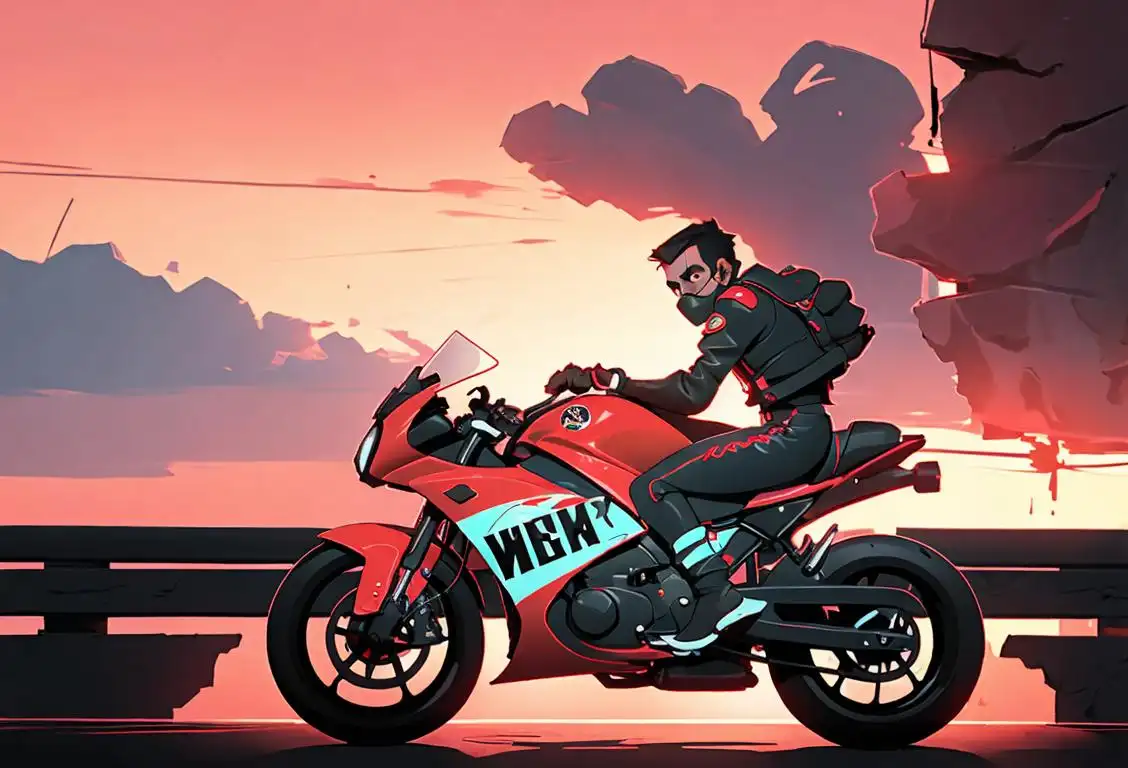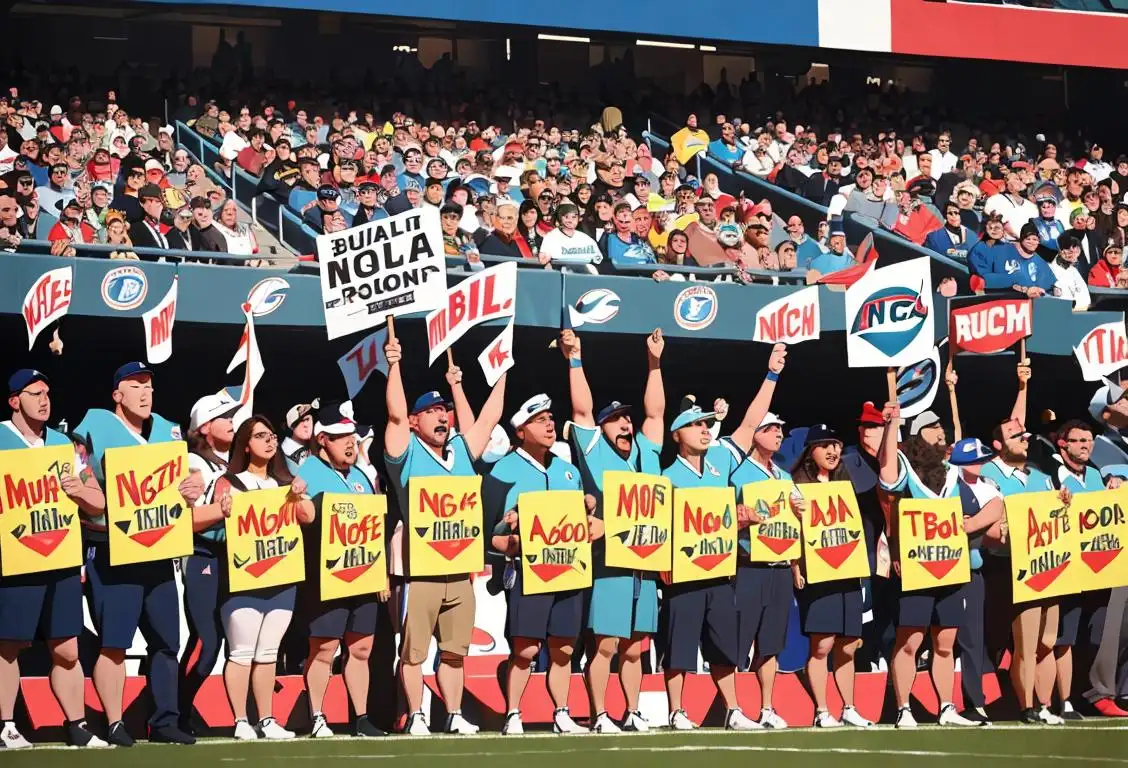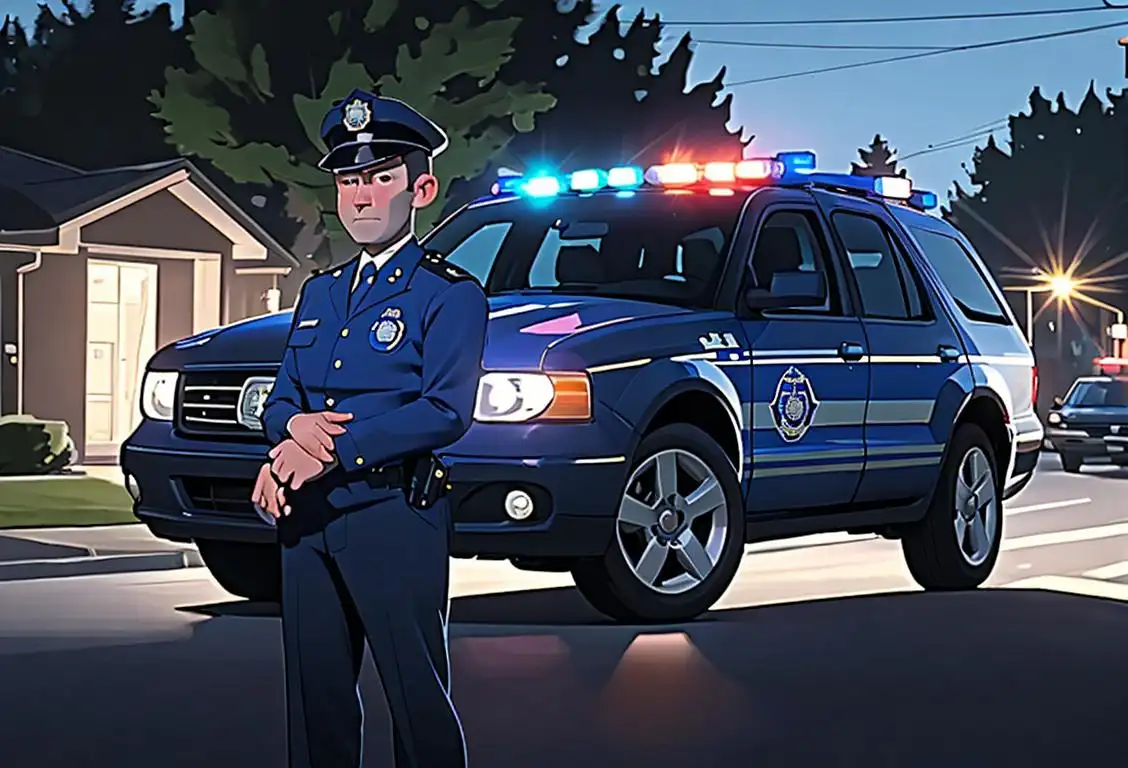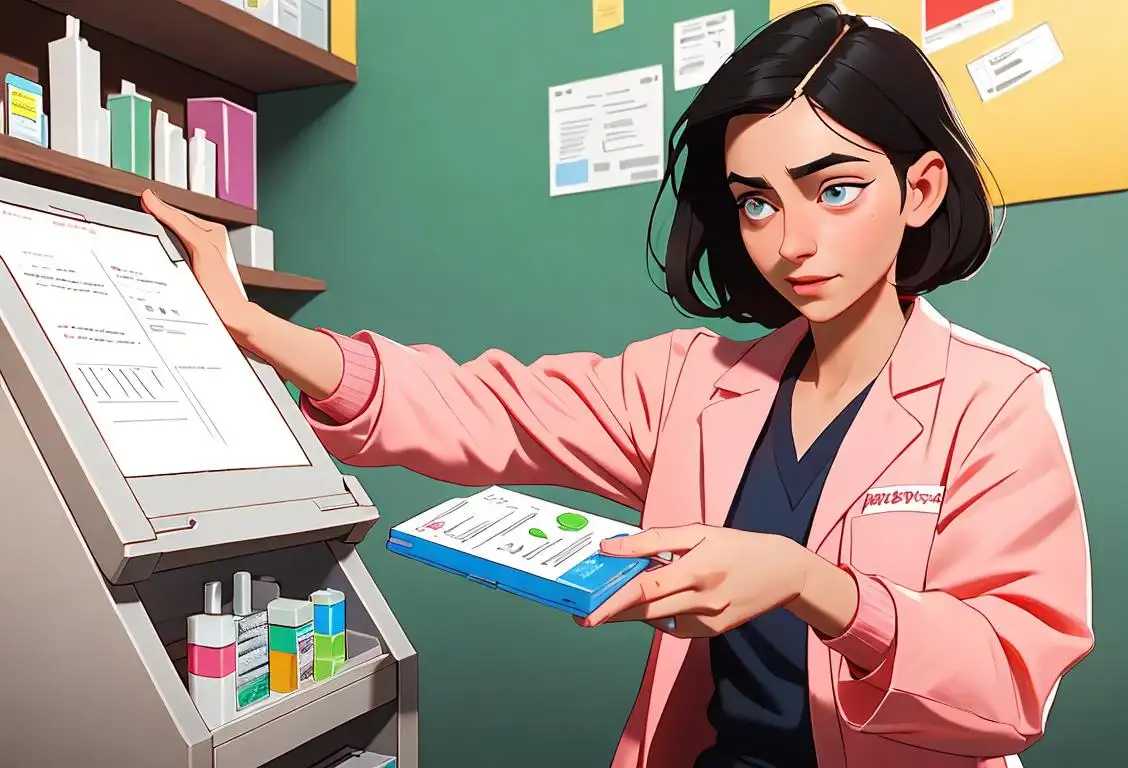National Blood Bikes Day

Hey there, curious reader! Let's dive into the fascinating world of National Blood Bikes Day. Get ready for some two-wheeled heroics and a whole lot of heartwarming tales!
When is Blood Bikes Day?
It's national blood bikes day on the 17th August.
The Birth of National Blood Bikes Day
Every August 17th, we celebrate National Blood Bikes Day, paying tribute to the incredible volunteers who zip through the streets on motorcycles, delivering life-saving medical supplies. These unsung heroes play an instrumental role in providing urgent transportation for blood, organs, and other crucial medical items.
When you think about it, the concept of blood bikes is genius. They save time on congested roads, bypassing traffic with ease to ensure that important deliveries reach their destination swiftly and safely. It's like having a fleet of speedy superheroes riding through the city streets!
Origins of National Blood Bikes Day
The origins of National Blood Bikes Day can be traced back to the rise of blood bike groups across the globe. These groups consist of dedicated volunteers who give their time and skills to support their local healthcare institutions. They quickly became integral members of their communities and garnered massive recognition for their selfless commitment.
With a surge in social media and online platforms, National Blood Bikes Day gained traction and started to generate buzz among netizens. As hashtags emerged, people began sharing heartwarming stories, expressing their gratitude, and highlighting the immense importance of these incredible volunteers.
Did You Know?
Did you know that blood bike riders are not just skilled riders, but also passionate advocates for road safety? These superheroes in helmets work tirelessly to ensure their deliveries are not only prompt but also safe. They often engage in road safety campaigns and promote responsible driving practices. So, next time you see a blood bike zooming past, give them a thumbs up and a big smile!
History behind the term 'Blood Bikes'
1969
The Birth of the Blood Bikes
The term 'blood bikes' originated in the United Kingdom in 1969. It was used to describe a fleet of motorcycles that were modified and equipped with special containers to transport blood and other medical supplies quickly and efficiently. The idea behind these blood bikes was to provide a rapid response service to deliver vital medical resources to hospitals and clinics, especially in emergency situations or during out-of-hours periods.
1962
Birth of the Blood Bikes
The term 'blood bikes' originated in the United Kingdom in 1962. It refers to motorcycles that are specifically used for transporting urgent medical supplies, including blood, plasma, and other life-saving products. These motorcycles are ridden by a dedicated group of volunteers who offer their services to hospitals and medical facilities.
1970
The First Blood Bike Organization
In 1970, the first official blood bike organization was established in the UK. Named the 'Freewheelers Emergency Voluntary Service,' it played a crucial role in developing and expanding the concept of blood bikes nationwide. This organization recruited passionate volunteers who were motorcyclists and trained them to handle the transportation of blood and other medical items. The Freewheelers, inspired by the effectiveness and success of their service, urged other regions to establish similar blood bike groups, leading to the formation of a network of blood bike organizations across the country.
1971
The Formation of the Nationwide Association
In 1971, the first nationwide blood bike association was formed in the UK. The purpose of this association was to coordinate and organize the growing number of blood bike groups across the country. This step was crucial in establishing a uniform system for transporting medical supplies and ensuring efficient services.
1990
Recognition and Expansion
During the 1990s, the term 'blood bikes' gained wider recognition both within and beyond the UK. The success of the blood bike organizations led to increased funding support from hospitals and medical institutions. This recognition enabled the expansion and improvement of the fleet of blood bikes, allowing them to cover larger areas and deliver a wider range of medical supplies. The term 'blood bikes' became synonymous with these voluntary motorcyclists who selflessly served the medical community, often providing a vital lifeline for patients in need.
1981
Utilizing Radio Communication
In 1981, blood bike groups started using radio communication systems to enhance their effectiveness. This technology allowed better coordination between hospitals, riders, and dispatchers. By using radios, the blood bikers could respond rapidly to urgent requests and ensure timely delivery of vital medical supplies.
2003
Expansion and Modernization
In 2003, blood bike services expanded beyond the UK, reaching other countries such as Australia, Ireland, and Germany. The term 'blood bikes' became more widely recognized internationally and gained appreciation for its role in supporting healthcare systems. With advancements in technology, modern blood bikes were equipped with specialized storage compartments and communication devices for easier handling and tracking of medical supplies.
2005
National Blood Bike Awareness
In 2005, the term 'blood bikes' gained national awareness and recognition in the UK when the National Association of Blood Bikes (NABB) was established. This national association brought together various blood bike groups under one umbrella, facilitating collaboration, standardization, and the exchange of best practices. The establishment of NABB helped raise the profile of blood bikes and allowed for better coordination and communication between different regions. It also provided a platform to promote the importance and impact of blood bikes in the medical community and society as a whole.
Present
Global Spread and Ongoing Service
Since the 2000s, the concept of blood bikes has expanded globally, with other countries adopting the term and implementing similar voluntary services. Today, many countries have their own blood bike organizations or equivalents, with thousands of dedicated volunteers serving their communities. The term 'blood bikes' has become widely recognized as a symbol of selfless service, community support, and the vital role motorcycles can play in emergency healthcare logistics. These dedicated riders continue to make an invaluable difference in delivering lifesaving resources efficiently and rapidly, showcasing the power of human compassion and the impact a simple term can have.
2010
Recognition and Appreciation
Over time, blood bikes garnered significant recognition for their vital services. In 2010, the UK's National Association of Blood Bikes received the Queen's Award for Voluntary Service, a prestigious honor highlighting the exceptional contributions made by blood bikers. This acknowledgment further elevated the profile of blood bikes and their impact on healthcare systems.
Did you know?
Did you know that blood bike riders are not just skilled riders, but also passionate advocates for road safety? These superheroes in helmets work tirelessly to ensure their deliveries are not only prompt but also safe. They often engage in road safety campaigns and promote responsible driving practices. So, next time you see a blood bike zooming past, give them a thumbs up and a big smile!Tagged
awareness community volunteersFirst identified
11th August 2017Most mentioned on
17th August 2018Total mentions
26Other days
Blood Bikes Day
Random Acts Of Kindness Day
Cheese Pizza Day
Boycott Of The Nfl For Day
Law Day
Philanthropy Day
Thank A Police Officer Day
Prescription Drug Take Back Day
First Responders Day
Run For Office Day








